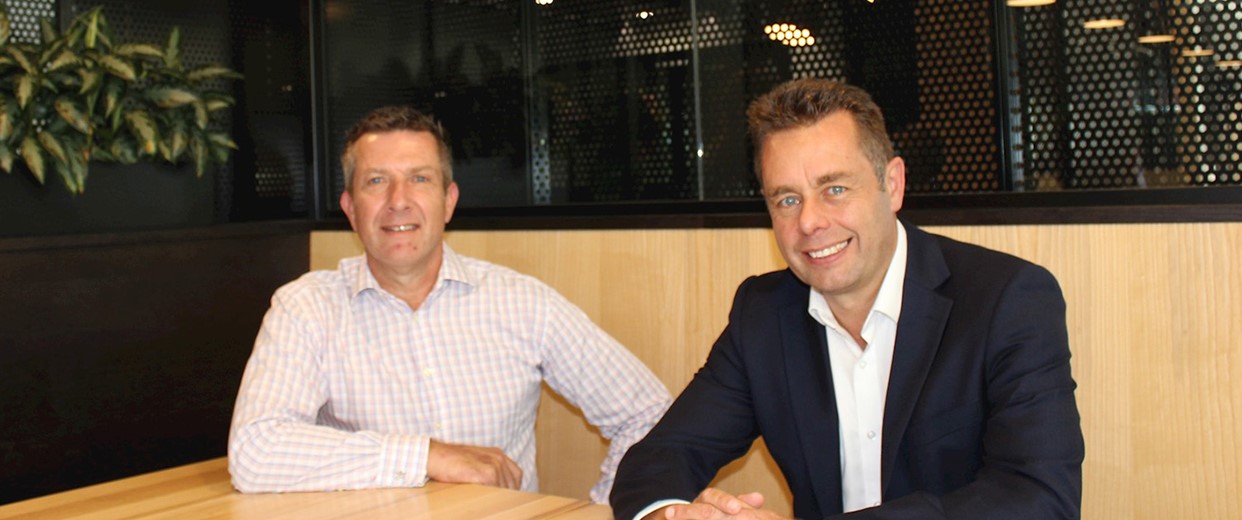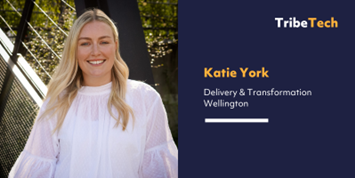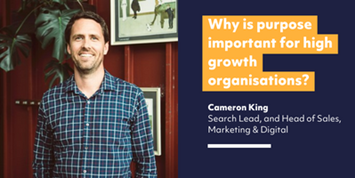From CFO to CEO at Kantar New Zealand
Unlike other professions, accounting and finance generally has a clear career path - you work towards your professional accounting qualification, then you make your way up through the debits and credits, before reaching management. Once you get to the top of the accounting and finance ladder, and make it to Finance Director or CFO, the path however becomes less clear. Where do you go from here? What are your options?
Jason Shoebridge, CEO of Kantar New Zealand, worked his way up through the ranks before taking the helm of two of New Zealand's largest research brands. Our Head of Accounting & Finance Brad Gatehouse caught up with Jason to find out how he made the transition from CFO to CEO, and to ask what advice he would give to other people who want to make the move.
Tell us about your career journey
I had a fairly typical path early on. After finishing university, I joined Arthur Andersen – a firm sadly no longer with us – as a graduate. After a couple of years, I went to the UK on my OE, took a 2 week temp job at a large PR agency in London and left 5 years later as the UK Finance Director. Returning to New Zealand I had financial and commercial roles with TVNZ and Carter Holt Harvey. I then got invited to join an ex-colleague who was a shareholder in a local consulting firm, which eventually ended up being acquired by Kantar TNS. When the original shareholders left the business following the acquisition, I took on the Managing Director role. After a global reorganisation I was then promoted to be the CEO for Kantar New Zealand with responsibility for both our agencies in New Zealand; Kantar TNS and Colmar Brunton. More recently I have taken on an additional role as Head of Kantar’s Analytic Practice in Asia Pacific overseeing the establishment and operation of our “big data” business in the region. Along the way I have also had some governance roles and am currently Deputy Chair of Sport New Zealand
What is it like heading two of New Zealand's largest Research brands?
It’s fantastic. I work every day with a group of smart and engaged people, both in New Zealand and offshore. We do work with a great set of clients including many of New Zealand’s largest corporates and public sector organisations on a range of critical business issues. There is also the challenge that comes from leading a people-based business in a fast moving industry which means every day is different and there are constant challenges that you are having to face.
How did you make the transition from CFO to CEO? What do you think has been key to your success?
I did it by broadening out my skill base from my finance skills to encompass the range of business disciplines and softer skills that are required to lead a business. I did an MBA that gave me a broader business knowledge but I was also fortunate that I worked in a consulting firm that exposed to me to the range of different business issues that we were solving for clients. I have also had the benefit of working in a global organisation that invests in its people and so have been able to develop the softer leadership skills that are critical to succeeding in a CEO role.
What would be your three tips for people keen to transition from CFO to CEO roles?
The first, as it is for anyone who comes from a particular business discipline, is to consciously try and broaden your skills and experience through the professional development you do and the work opportunities you take up. Secondly, I think you need to avoid being pigeon-holed as “the bean counter”. There is a wholly undeserved perception in some organisations that if you work in finance you are much more comfortable with numbers than people and therefore developing and demonstrating people leadership skills is important. Finally, I think career pathways, as I have described above, usually make sense when you look back on them but if I think back to when I was a graduate accountant, even though I always wanted to eventually be in a CEO role, I couldn’t have mapped out how I got there. Therefore, I think rather than a defined path, you need to have your eye on what you are ultimately aiming for and be conscious of the skills you will need to get there and then take the opportunities that present themselves.
Was it a big change for you? Have there been any challenges, if so, how did you overcome them?
There are definitely points in my career that I now realise were “Sliding Doors” like moments but it has seemed more like evolution rather than revolution overall. The biggest challenge was, and still is, the fact that I lead a business that is completely dependent on recruiting and retaining the best people we can find in their particular disciplines and having them work together to produce outstanding insight for our clients. We have access to great global IP and technology but it is our people that clients seek out. Therefore, ensuring we can meet the needs of our people, that they are growing in their careers and we are using their expertise and experience to deliver the best results we can for our clients is an ongoing challenge.
Do you think there is a clear career path for CFOs to become CEOs?
Definitely and probably more so than from other business disciplines, rightly or wrongly. Being a CFO gives you a deep understanding of how and where businesses make money which is critical for any CEO. The secret is to avoid being pigeon holed and look to develop the breadth of skills – both in terms of other business disciplines and the softer skills required – which often will involve taking opportunities that put you out of your comfort zone.
How has the role of the CFO evolved over your career?
It seems to me to be much more forward looking than it used to be. A lot of the emphasis used to be on the production and analysis of historical financial information. Now a lot of that information is available to the business almost in real time and this has allowed CFOs to focus much more on the focus and so you see them working more with the business around planning, future strategy and managing risk.
The world of work is changing - what are the biggest trends that are impacting your industry?
The two trends that are having the biggest impact on our industry are technological development and the rise of the millennial workforce. Technology means that organisations have almost unlimited access to data whereas maybe a decade ago they would have had to come to agencies like ours to get it. While they have access to this data the challenge is to draw meaningful insight from it. However, this technological development also means that this data can be processed and analysed in a way, which when combined with the understanding of why people behave the way they do that agencies like ours have always had, allows us to meet that challenge. This is the reason that we have developed the analytics business that I now lead in the region.
As I said above we are a people business and increasingly our people are Millennials, who quite rightly have different expectations of what they want from their employer and their career, compared to previous generations. Our challenge is to ensure we recruit and retain the best and as a result this means we are continuing to need to evolve the way we work and the career opportunities we provide to our people to meet these expectations.
To find out more about Accounting & Finance recruitment at Tribe, get in touch with Brad Gatehouse on 027 611 3638 or brad@tribegroup.com






